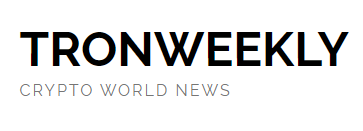You are here: Home / News / South Korea’s Bold Move: Crypto Trading Ban Lifted for Institutions in 2024

February 14, 2025 by Mwongera Taitumu
- Nonprofits, universities to sell digital assets in 2024 under new rules.
- Listed companies, professional investors can trade crypto by mid-2024.
- Financial institutions remain banned from direct crypto trading.
In a landmark move, South Korea is set to allow institutions and nonprofits to participate in the crypto market in 2024. However, financial institutions will still face strict restrictions on direct crypto trading.
South Korea Lifts Institutional Crypto Ban
South Korea’s Financial Services Commission (FSC) has announced plans to lift a ban on institutional crypto trading, a policy that was enforced in 2017. The decision follows increased global demand for digital assets and blockchain-related services. Initially, nonprofit organizations, charities, and universities will gain access to the market in the first half of 2024.
The Financial Services Commission set out new guidelines that allow non-profit entities and law enforcement agencies to buy and sell digital assets. These entities will be permitted to open verified bank accounts for virtual asset transactions. Corporations and professional investors will also gain access by the second half of 2024 under new regulations to ensure transparency and prevent money laundering.
In 2017, South Korea imposed the ban to curb speculation and address money laundering risks. The FSC has introduced the “Virtual Asset User Protection Act” which provides a legal framework to protect consumers and reduce market risks. This act aims to ensure a safer environment for digital asset transactions.
Financial Institutions Still Face Restrictions
Although the new measures allow institutions to trade crypto, financial companies such as banks and brokerages will remain barred from direct involvement. These institutions are also prohibited from offering crypto-backed financial products like ETFs, due to concerns over speculative behavior and market instability.
The rollout of these measures will begin with nonprofits and public institutions in the second quarter of 2024. These entities will be allowed to sell digital assets and make crypto donations, which were previously restricted. A pilot phase will begin in mid-2025 to enable institutional investors to engage in blockchain-related investments with enhanced security such as third-party custody.
Additionally, the FSC has outlined a strict approval process for institutional participants. Only entities with verified sources of funds and clearly defined transaction purposes will be allowed to open accounts. This process is designed to maintain transparency and reduce the potential for illegal activity in the market.
However, financial institutions will not be allowed to hold or trade cryptocurrencies directly. Banks, brokerages, and other financial companies must adhere to existing regulatory frameworks and avoid engaging in high-risk transactions. The FSC will continue to monitor the market and adjust regulations to ensure stability and protect consumers.

 7 months ago
50
7 months ago
50




 English (US) ·
English (US) ·